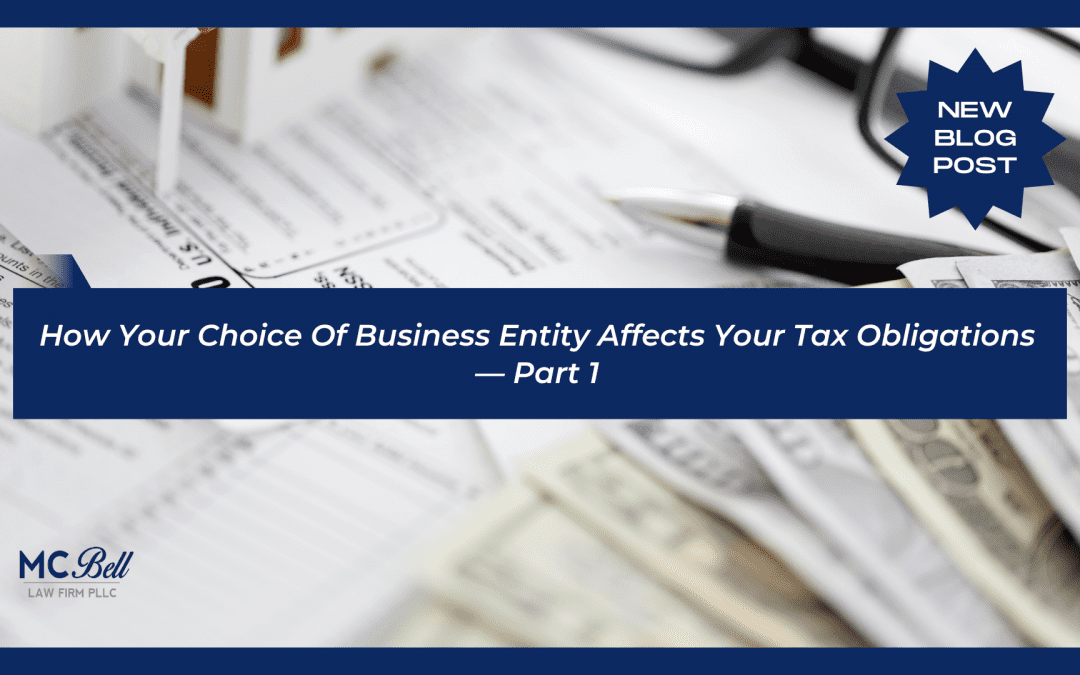In the process of selecting a business entity structure, factors such as personal liability protection, financial planning, and record-keeping requirements are paramount. Equally crucial is determining how your company will be taxed, as this decision not only influences the tax rate and filing procedures but also has implications for various aspects of your personal and business life.
Exploring the tax obligations for each type of business entity and understanding the inherent advantages and disadvantages is vital. While this article provides a helpful starting point to grasp the tax benefits associated with different entities, it is essential to seek advice from us, your Family Wealth and Estate Attorney with business planning expertise, before making your final decision.
Sole Proprietorships
As a sole proprietor, your business and personal identity are intertwined for IRS purposes. All business assets and liabilities are reflected on your personal 1040 tax return. Reporting business income and expenses is done on Schedule C, becoming a line item on your 1040.
From a tax standpoint, the simplicity of sole proprietorships stands out, with no separate taxes for the business. While cost-effective to set up, the drawback lies in being taxed on all revenue, irrespective of withdrawals or paychecks. The audit risk for sole proprietors is higher than for other structures, and self-employment taxes must be paid quarterly.
Partnerships
A partnership is essentially a multi-owner sole proprietorship, where partners share responsibilities and report profits and losses individually. The partnership itself is not a separate entity for tax purposes.
Income, deductions, and gains are reported to the IRS through Form 1065, with individual partners reporting on their tax returns via Schedule K-1. Partnerships are cost-effective but can be complex due to decision-making involving multiple partners. Self-employment taxes and quarterly estimated payments apply.
Limited Liability Companies (LLCs)
LLCs offer flexibility in tax treatment based on the number of owners. Single-member LLCs are automatically taxed as sole proprietorships, while multi-member LLCs are taxed as partnerships, unless they elect corporate taxation.
In the case of S Corporation election, the LLC files a tax return, but the entity itself does not pay taxes. Instead, profits or losses are passed through to members, reported on personal tax returns. Choosing S Corporation status can reduce payroll taxes, making it advantageous for LLCs with substantial net income.
Opting for S Corporation election requires careful consideration of factors like net income, payroll taxes, and audit risks. Seeking guidance from us, your Family Wealth and Estate Attorney, ensures a comprehensive understanding of the implications.
Entities & Taxes: Choosing The Structure That’s Right For You
In the upcoming part two of this series, we will delve into the tax obligations of the remaining entity structures—S Corporations and C Corporations—exploring their benefits and drawbacks. If you require assistance or advice regarding your company’s entity structure or any other business-related matter, schedule a meeting with us, your Personal Family Lawyer with business planning expertise, to receive the support needed for informed decision-making.
This article is presented by Michelle Bell, an expert in estate planning and business succession services. Our office provides comprehensive legal support for businesses, assisting you in making informed decisions throughout your entrepreneurial journey and in planning for future contingencies. We also offer a specialized session where we review your business’s legal structures. To arrange this consultation, please click the following link: https://calendly.com/mcblawpllc/30min.
The information in this article is intended purely for educational and informational use and should not be considered as advice on ERISA, tax, legal, or investment matters. For advice specifically tailored to your unique situation, such advice should be sought independently from this educational content.

